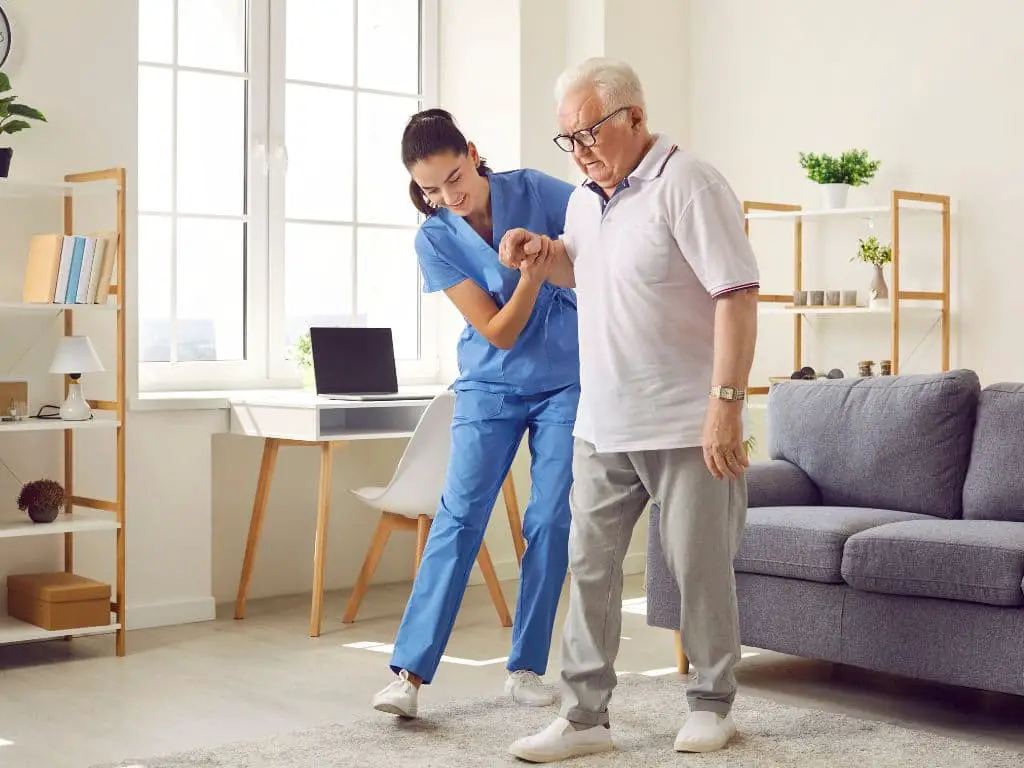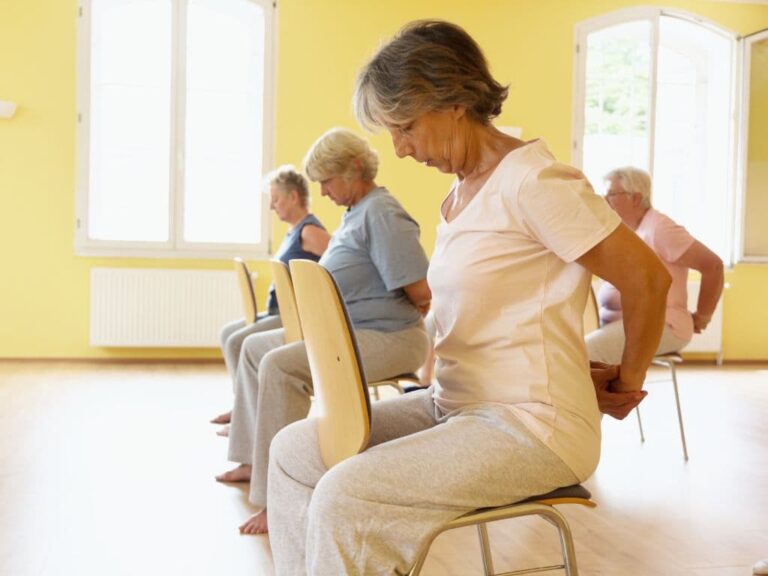Why Do My Legs Give Out When I Stand Up?
When seniors experience their legs giving out or feeling weak when they stand up, it is usually a sign of an underlying medical condition affecting their leg muscles, nerves, or skeletal system. This experience, sometimes called buckling of the knees, indicates an inability of the leg muscles to properly support body weight and maintain balance. The medical term for this condition is leg weakness or gait instability. It can greatly impact seniors’ mobility and independence.
Legs giving out when standing up, or leg weakness, in seniors is often due to underlying conditions like age-related muscle loss (sarcopenia), neurological diseases, arthritis, cardiovascular disease, dehydration and electrolyte imbalance. Other factors include side effects from certain medications and lack of physical activity. Symptoms include difficulty standing, unsteady gait and numbness or pain in the legs.
Leg weakness has many potential causes in the senior population. Understanding the most common reasons seniors develop leg weakness can help identify the underlying problem and find the right solutions.

What Are the Common Causes of Weakness in Seniors’ Legs?
There are a number of age-related and disease factors that can contribute to seniors’ legs feeling weak. Some key causes include:
1. Age-Related Muscle Loss (Sarcopenia)
Sarcopenia is the loss of muscle tissue and strength due to aging. After age 50, adults lose on average 3-5% of their muscle mass per decade. Muscle atrophy in seniors’ legs contributes to difficulty standing up, walking and instability.
2. Neurological Conditions
Neurological diseases like Parkinson’s disease, stroke, and peripheral neuropathy can impair nerves that control leg strength, balance and coordination. This nerve damage contributes to unsteady gait and legs giving out.
3. Arthritis and Other Joint Conditions
Conditions like osteoarthritis and rheumatoid arthritis cause swelling, stiffness and damage in leg joints, making standing and walking painful and unsteady. Joint inflammation contributes to buckling knees.
4. Cardiovascular Disease
Poor circulation in the legs caused by atherosclerosis or blood vessel disorders reduces blood flow to leg muscles, depriving them of oxygen and nutrients needed for strength and function. This can cause temporary leg weakness.
5. Dehydration and Electrolyte Imbalance
Dehydration and imbalanced electrolytes, especially sodium and potassium, can impair muscle function. Deficits make legs prone to cramping, spasms and temporary weakness or failure.
6. Medication Side Effects
Some prescription drugs like diuretics, statins, antipsychotics and blood pressure medications list leg weakness as a potential side effect. They can contribute to electrolyte imbalance or affect circulation.
7. Lack of Physical Activity
An inactive lifestyle leads to progressive loss of leg muscle mass. Poor leg strength due to disuse atrophy makes seniors more susceptible to episodes of legs giving out.
What Are the Symptoms of Leg Weakness in Seniors?
Some key symptoms that seniors may experience with leg weakness include:
- Difficulty standing up from a seated position
- Buckling or giving way of the knees when standing
- Generalized weakness or heaviness in the legs
- Numbness, tingling or pain in the legs
- Fatigue in leg muscles after minimal activity
- Unsteady or shuffling gait
- Loss of balance and coordination
Paying attention to these symptoms and discussing them with a doctor can facilitate rapid diagnosis and treatment.
How Is Leg Weakness Diagnosed in Seniors?
Doctors use several approaches to evaluate and diagnose leg weakness in seniors:
- Medical history review to check for underlying chronic diseases
- Physical examination assessing leg muscle strength, tone, reflexes and gait
- Blood tests measuring electrolyte, hormone, and nutrient levels
- Imaging tests like x-rays or MRIs to assess nerve, bone, or tissue abnormalities
- Electromyography to analyze electrical activity in leg nerves and muscles
These diagnostic tools help pinpoint causes like sarcopenia, arthritis, diabetes, or nerve damage. Early diagnosis facilitates quicker intervention.
What Are the Treatments for Leg Weakness in Seniors?
Treatment focuses on the underlying cause of seniors’ leg weakness but commonly includes:
1. Strength Training Exercises
Simple leg strengthening exercises using resistance bands, small weights or even just bodyweight help rebuild muscle mass and reverse disuse atrophy. This improves stability.
2. Balance and Mobility Exercises
Exercises that challenge balance while walking or standing make legs stronger, retrain gait, and reduce fall risk related to weakness. Tai Chi is excellent for this.
3. Proper Nutrition and Hydration
A diet high in protein, vitamins like B12 and D, and minerals like calcium and magnesium provides nutrients to optimize muscle and nerve function. Staying well hydrated is also key.
4. Regular Medical Check-Ups
Routine check-ups allow early diagnosis of conditions like heart disease, diabetes or stroke that can contribute to leg weakness before it becomes advanced.
5. Medication Review
Adjusting or changing medications known to cause leg weakness as a side effect can alleviate those effects.
6. Use of Assistive Devices
Canes, walkers, or leg braces help compensate for muscle weakness and improve stability and mobility.
Physical therapy to build leg strength is also very beneficial. Surgery may sometimes be required for joint injuries or severe neuropathy.
When Should You Seek Medical Help for Weakness in Seniors’ Legs?
See a doctor right away if seniors experience sudden onset weakness in the legs, as this may indicate a serious issue like stroke or nerve damage. Also seek prompt medical help for weakness that causes recurrent falls or impacts everyday function. With treatment, many seniors can significantly regain strength and stability. Don’t write off leg weakness as just part of aging – seek support early.
Frequently Asked Questions
-
Why do my legs give out when I stand up?
An alarming sign of weakness in your legs is sudden, or even complete collapse. The cause of weakness in your legs is often due to problems with the lower muscles and nerves. This condition can usually be treated. Sometimes, there may be serious medical conditions that require immediate attention.
-
Why do older adults have balance problems?
Even for seniors in good health, balance problems can often be a result of age. Balance problems can be caused by stiff joints, neurological conditions or other serious issues. Inner ear issues are most commonly the culprit.
-
Does blood pressure medicine affect your balance?
One or more side effects of many medication can cause you to lose your balance. For example, medications that lower blood pressure can lead to dizziness. Some medicines can cause damage to the inner ear. Ototoxic medications, also known as medicines that can cause imbalance, may make it difficult to feel balanced.
-
Can balance problems be cured?
Sometimes balance problems can appear prior to other symptoms. There are many treatment options for chronic conditions. Although most progressive conditions cannot be curbed, medication and rehabilitation can slow down the progression.
-
What is the best vitamin for balance?
One of the best minerals for hormone balance is magnesium. You can supplement your magnesium intake or spray your skin with magnesium spray. But the best way to get the magnesium you require is from what you eat.
-
When I close my eyes I lose my balance?
If you have a tendency to move with your eyes closed, it could be a sign of spinal disorders (e.g. polyneuropathy). If you notice a tendency to move and fall while your eyes are open, it could be dizziness from the vestibular-cerebellar source.
-
What Vitamin Am I lacking if I feel dizzy?
Vitamin B12 deficiencies are easy to diagnose and treat. However, they can often be overlooked as a cause for dizziness. If you are experiencing dizziness, ask your doctor to perform a quick blood test. Vitamin B12 is found in meats, milk products and fortified cereals.
-
What does it mean when your fart smells like rotten eggs?
Let’s begin with the main reason stinky farts occur: it’s due to what you ate. A nutritious diet rich in fiber can help prevent gasses from forming during digestion. Hydrogen sulfide can sometimes be produced during digestion, and this could cause an unpleasant rotten egg odor in any baked air biscuits you make.
-
Is a burp a fart out of your mouth?
Gas passing through your mouth is known as belching, or burping. Flatulence is when gas passes through the anus.
-
Why do old people feel cold?
The natural decline in metabolism associated with aging can lead to a decrease in heat production, which could result in seniors not being able to keep their body at a normal temperature of 98.6 degrees. A slower circulation may make it more difficult for the body to keep heat. It could also be caused by side effects of medication or aging.






